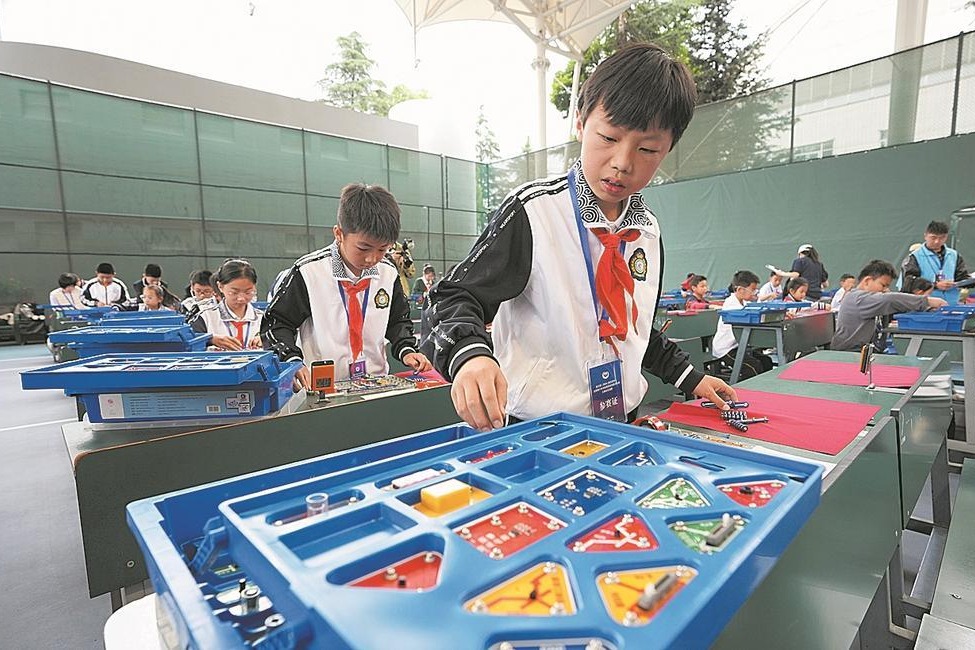Individual treatment promotes patient stability

Wang Meiying has lived alone since her husband died three years ago. By June last year, when the 78-year-old started attending a comprehensive service center for seniors in Shanghai's Bund neighborhood, she would not eat, sleep, take medication or communicate with other people.
Social workers from the center visited Wang's family and neighbors seeking the cause of her behavior.
They learned that the senior had always been a warm and positive person who had enthusiastically taken part in public welfare activities, liked interacting with people and enjoyed dancing.
The change came when her husband died, and she began grieving every day and refused to communicate.
Gradually, they realized that Wang uttered unintelligible words and repeated the same actions day and night. That was when a doctor diagnosed her with Alzheimer's disease.
With detailed knowledge of Wang's condition, the social workers and nurses began guiding the senior and helping her retain basic information about the center. For example, they introduced themselves repeatedly and regularly explained the center's function and location so she could join in with the daily routine as quickly as possible.
The staff members communicated with Wang's family every week to provide professional support and assistance.
They also introduced treatment methods, including observation and doll therapy-in which patients interact with dolls by holding their hands, hugging them, talking to them and simulating feeding.
The treatment is designed to promote a feeling of attachment and ease the patient's sense of vulnerability and powerlessness, because attachment has always been considered a basic psychological requirement for patients.
Musical intervention and behavioral control have also been added to Wang's daily recovery activities to train her brain and slow the progress of her illness.
After many months of treatment, Wang has become less anxious and her moods have stabilized. She attends daily events at the center with family members, can recognize the nurses and has gradually become more sociable.
Under the guidance of social workers, she has learned simple finger gymnastics and plays games that enhance her mobility.
A center representative said that as a senior with cognitive impairment, Wang is prone to retreat into her own world. However, the pharmaceutical-free treatment she is receiving is gradually helping her reconnect with the "outside world".
Today's Top News
- Xi encourages young sinologists to bridge China, the world
- Xi, president of Comoros exchange congratulations on 50th anniversary of ties
- Luxury leasing market gains traction in HK
- Historic games forge deeper bonds beyond podium
- Technology will ensure future heroes save lives and live
- Auto market rides high on NEV sales growth






























